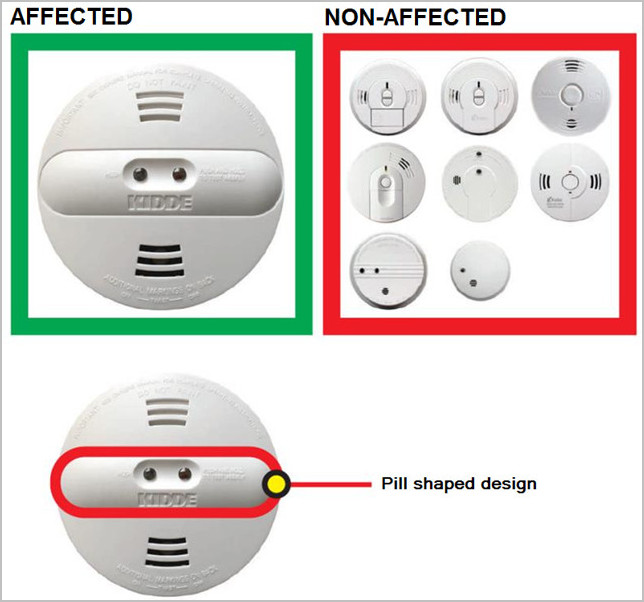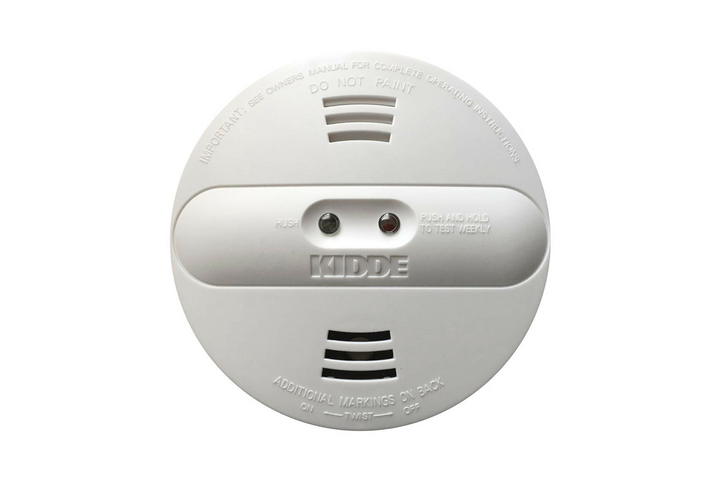Health Canada has issued a recall for 40,000 Kidde smoke alarms.

Two Kidde dual-sensor smoke alarm models, manufactured between September 2016 and October 2017, are included in the recall: PI2010CA and PI9010CA.
READ MORE: Fire killed an Ontario man’s family – but a $30 smoke alarm could have saved their lives
A recall alert posted Wednesday explains that the models have a yellow cap over one of the two smoke sensors, which means the product might not be able to detect smoke.
The company has not received any reports of incidents or injuries.
READ MORE: Fire officials push for more mandatory smoke detectors in Nova Scotia homes
The affected alarms were sold in Canada between November 2016 and January 2018. The company told Global News that it cannot specify which provinces are affected, and consumers should check their individual products.
Another 450,000 products have been recalled in the United States. Kidde products are sold online and at stores such as Walmart and Home Depot.
Another way consumers can tell whether their alarm is under recall is by checking for a “pill” shape on the product’s surface.
Here’s a closer look:


More detailed instructions can be found on the company’s website.
The recall alert explains that the product will have to be detached from the wall or ceiling and then inspected. Consumers should check the brand, look for the model number, then check the design.

Get breaking National news
WATCH: Health Canada issues recall for 40,000 Kidde smoke detectors. Jamie Mauracher reports.

“If a yellow cap can be seen in the opening, the unit is affected and must be replaced,” the recall alert reads. “Consumers should not attempt to take apart the alarm, open the casing, or otherwise remove the yellow cap themselves.”
If there is no yellow cap visible, the alarm is safe and can be reinstalled.
READ MORE: ‘A ticking time bomb’: B.C. woman urges vigilance after recalled stove burns down home
Those who do see a yellow cap should immediately contact Kidde to receive a free replacement — but not remove the original smoke alarm until a new product has been delivered.
Kidde can be contacted at 1-833-551-7739 during regular business hours, or online on its website.
WATCH: Recent recalls in Canada
Previous Kidde fire extinguisher recall
Kidde’s smoke alarm recall comes months after it called back 2.7 million fire extinguishers in November 2017.
The recall in Canada involved 134 different models sold between Jan. 1, 1973, and Aug. 15, 2017. Some of the models in this recall had been previously recalled.
READ MORE: 2.7 million fire extinguishers recalled in Canada
According to the recall, the fire extinguishers could “become clogged or require excessive force to discharge and can fail during a fire emergency.”
Another risk was the nozzle detaching with such force that it could pose a hazard.
— With files from Global News reporter Tania Kohut
















Comments
Want to discuss? Please read our Commenting Policy first.